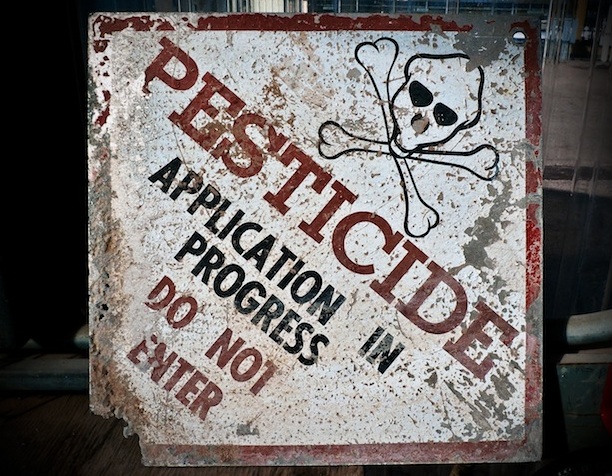
Walmart, that bastion of cheap food, clothing, and everything in between, has corporate-responsibility goals that put every other big box retailer to shame. When Walmart asks its 60,000 suppliers to shape up, the world listens; a demanding packaging goal will have companies the world over scrambling to fit the requirements (for both Walmart and the inevitable copycat retailers that jack up their requirements later). In Walmart's 2011 Global Responsibility Report, we get a glimpse at just how far along the company is in meeting its ultra-ambitious goals. It's making exceptional progress.
Goal: Reduce our global plastic shopping bag waste by an average of 33% per store by 2013 (2007 baseline)
Convincing people to part with their beloved plastic bags is no small feat (outside of San Francisco, of course, where bans are a way of life). But Walmart has managed to do it. In 2010, the retailer cut down on plastic bag waste across its global operations by approximately 3.5 billion bags. This is a 21% reduction from the company's 2007 baseline--meaning the 2013 goal isn't out of the question.
In some California locations, Walmart is experimenting with nixing single-use plastic bags altogether (and offering reusable bags for a price)--a measure that is saving materials for Walmart and, to a degree, pissing off the locals (and biting Ikea). Now imagine if Walmart extended this plastic bag ban to all of its stores. At first, customers might riot. But the power of Walmart's ubiquity is that eventually, this ban could shift the average customer's mindset; this new breed of Walmart customer might bring reusable bags for every shopping trip, even outside of the big box retailer. This wouldn't come close to eliminating the plastic vortex currently floating in the middle of the Pacific Ocean, but it would be a start.
Goal: We will partner with suppliers to improve energy efficiency by 20% per unit of production in the top 200 factories in China from which we directly source by 2012 (2007 baseline).
Believe it or not, Walmart has already managed to achieve this goal (with a little help from the Environmental Defense Fund). An impressive 119 factories have improved their efficiency by 20%--but the EDF told us recently that Walmart's goal isn't ambitious enough. The organization believes that in many cases, factories can cut down on energy use by up to 60% with simple fixes. Unfortunately, Walmart asking its Chinese suppliers to increase energy efficiency probably won't inspire a sea change anytime soon; the EDF has had to deal with skepticism (initially, at least) during many of its factory visits.
Goal: In the U.S., Walmart will double sales of locally sourced produce, accounting for 9% of all produce sold by the end of 2015.
This goal, announced in October 2010, is still "in progress," according to Walmart. The chain says that it will measure success based on the amount of produce sales within the state of origin versus overall dollar amount of produce sales. We think Walmart can reach this goal purely because it has the cash resources to do so. In October, the company explained that it intends to go so far as to expand cash crops in certain regions. In Mississippi and Arkansas, for example, Walmart is using its hulk-like size to convince farmers to switch from tobacco and cotton to blueberry farming. If Walmart wanted, we imagine it could go far beyond a 9% goal just with the promise that farmers growing certain crops will get business from the company. And this, needless to say, could change the crop landscape across the U.S. to include foods that are suited to the local climate. Still, we don't expect to see the people with "Buy Local" bumper stickers hitting up Walmart anytime soon.
Walmart's goals seemed almost too ambitious when they announce them. But never question Walmart; some of the goals might not have even bee ambitious enough. Either way, Walmart wins. Cutting down on waste, increasing energy efficiency, and ramping up sales of local produce will save the company on fuel, energy costs, and materials--and in the end, make Walmart even more powerful than it already is.











 “The movement behind the Jan Lokpal Bill is crossing the lines of reasonableness. It is premised on an institutional imagination that is at best naïve; at worst subversive of representative democracy,”
“The movement behind the Jan Lokpal Bill is crossing the lines of reasonableness. It is premised on an institutional imagination that is at best naïve; at worst subversive of representative democracy,”